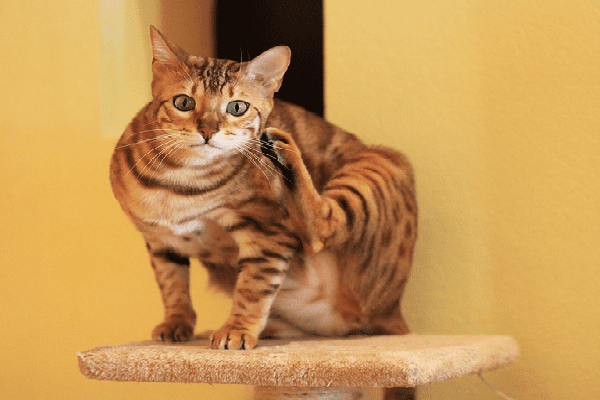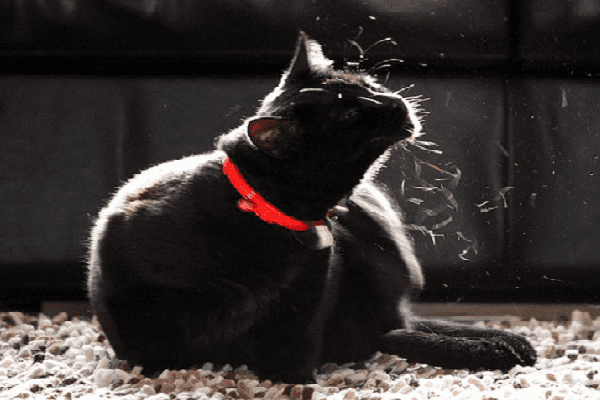Diseases of pets >>>> The animal is losing hair - why?
The animal is losing hair - why?

Keeping a pet teaches the owner to carefully observe the health of his pet. This is what helps to notice the signs of hair loss in the animal outside the shedding period (when the undercoat naturally thinns due to the warming of the environment).
What can be the reason for the loss of hair in an animal?
- The presence of fungal or parasitic skin diseases (microsporia, trichophytosis, trichodectosis);
- Hormonal disorder associated with metabolic disorders (endocrine diseases, including a violation of the production of sex hormones - excess or deficiency);
- Allergic reactions to food in the diet of an animal or allergens that accompany its residence (synthetic detergents that wash clothes for animals, care products for animal hair and detergents, or simply chemicals for household use that evaporate into the atmosphere of the room);
- Avitaminosis, develops from a lack of vitamins B, vitamins E and A.

Seasonal shedding differs from pathological hair loss in that it does not form foci, bald patches, bald patches in various places, and the wool spills evenly over the entire surface of the skin.
Pathological hair loss can be accompanied by itching of the skin, which causes the animal to constantly itch violently. Hormonal baldness of an animal is not accompanied by skin irritation, and hair can also fall out evenly over the entire skin, but this is an off-seasonality of this process.
In order to determine the cause of hair loss in an animal, a systematic examination is carried out by a veterinarian: scrapings are made from the skin, allowing to identify fungi or insects - parasites. If the result is negative, then the quality of the feed is improved - the feed is enriched with vitamins or vitamins are given to the animal outside the feeding, for example, they are dissolved in drinking water, and potential allergens from the animal's food and from its habitat are eliminated.
Hormonal disorders in an animal can be associated with diabetes mellitus, with impaired absorption of vitamins and minerals from food, with hormonal disruptions in the genital area. Often the cause of hair loss is hormonal drugs that the animal receives to reduce sexual instincts, as a sedative. Cancellation of such drugs can help restore the animal's coat.
There are cases when animals lose their hair against the background of prolonged stress when changing their place of residence or when a nervous situation in the house (for example, the presence of other animals or people to which the pet is not accustomed), when replacing the usual natural food with ready-made semi-finished products or granulated food, and also the animal loses its hair in cases when it has been sick for a long time with any diseases that deplete the immune system.
Hair loss in an animal can be triggered by natural aging processes, when the hormonal functions of some organs are also disrupted, feed becomes difficult to digest. Veterinary medicine solves this kind of problem by switching to lighter feed or hormonal correction with the help of pharmaceuticals.
In any of the cases of suspicious loss of hair, the animal should be consulted with a veterinarian, otherwise the animal may not only go bald, but also die from a developed pathology, a symptom of which was hair loss.

Read

Read



























